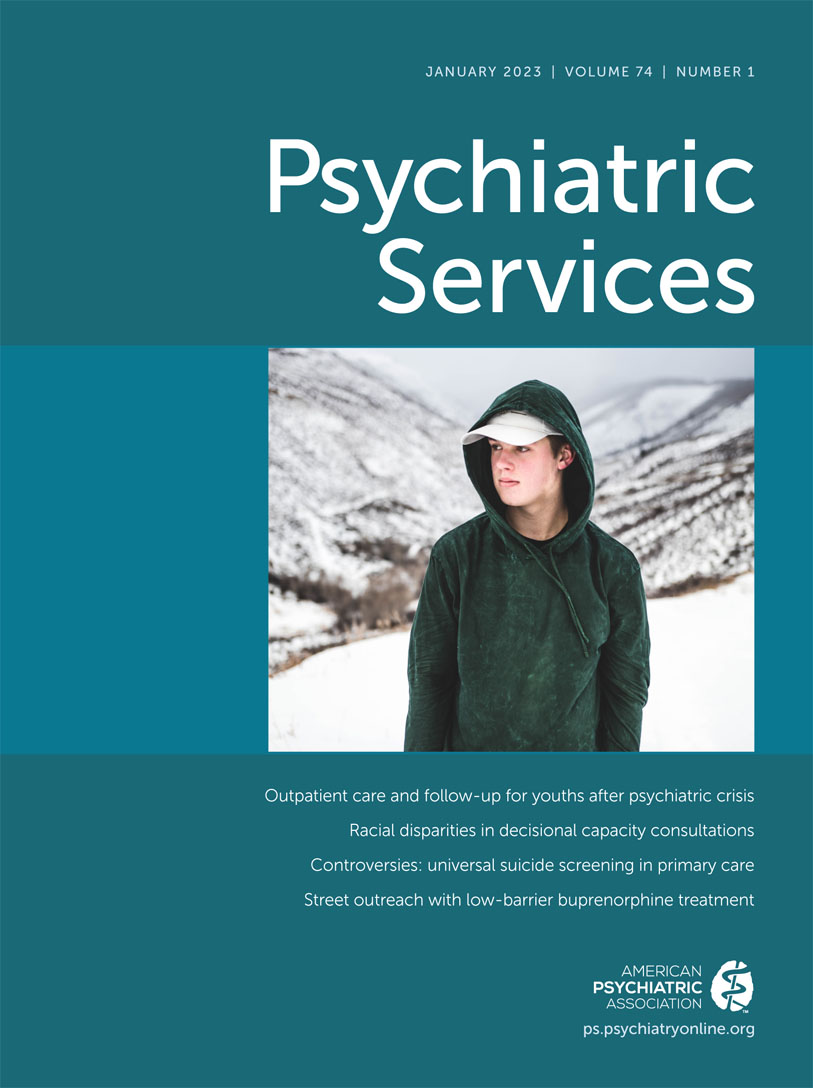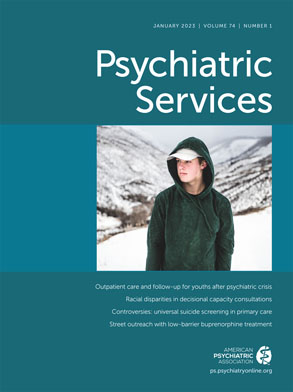Declining mental health is a serious problem facing the American Muslim community, but the mental health needs of American Muslims remain understudied (
1). In the Western world, Muslims face unique risk factors to mental health because of Islamophobia. Violence against Muslims has increased in the post-9/11 context, exemplified by policies such as the Trump administration’s Muslim ban (
2). Muslims describe living in constant hypervigilance and insecurity and are more likely to experience discrimination-related stress, especially because of their appearance (e.g., Muslim women wearing the hijab) (
3). Discrimination has been shown to trigger psychological problems and increase the progression of mental illnesses (
3). Despite having needs for mental health interventions, American Muslims are reluctant to see mental health professionals because of structural and cultural barriers. Some studies have indicated that mental health stigma within the Muslim community is attributable to beliefs about spirit possession, moral corruption, or tests from God. Other factors include shame in seeking out psychological services and mistrust of the Western mental health system due to a lack of culturally competent resources (
4–
6). Instead, American Muslims often seek counseling from religious leaders, despite their having little or no mental health training (
7). Another barrier is the lack of partnerships between Muslim community institutions (e.g., mosques) and mental health professionals. Ultimately, community-based interventions that specifically target stigma have the highest likelihood of improving mental health care for the American Muslim community (
1).
Mental Health and Bay Area Muslim Community: Prepartnership Contexts
The San Francisco Bay Area is home to one of the country’s largest Muslim populations. This diverse community largely comprises immigrants and is ethnically diverse (including South Asians, Arabs, Afghans, African Americans, Pacific Islanders, Iranians, and White Americans). The community is well educated, with annual incomes ranging from <$20,000 to >$100,000 per year, and 68% are younger than 45 years (
8).
Like other American Muslim communities, Bay Area Muslims have experienced the stressful anti-Muslim political climate, resulting in incidents such as bullying and verbal and physical harassment at schools. Although it had a clear need for culturally sensitive mental health services and programs, the Bay Area community was initially resistant to such efforts. A particular event in 2012, advertised as a conversation about youth and addiction, was held at the Muslim Community Association (MCA), which has the largest mosque in the area, serving nearly 10,000 Muslims. Despite collaboration between mental health professionals and religious leaders, only one person attended the event, reflecting the community’s hesitancy and stigma toward mental health (
4).
Establishing Partnerships: Key Stakeholders Involved
To further understand the mental health needs of the community, it is vital to partner with key community stakeholders. The primary author of this column (R.A.) began facilitating partnerships within the Bay Area community in 2013. With a background in Islamic law and psychiatry, she has researched and spoken about mental health issues viewed through an Islamic framework. For example, she has illuminated how the Hadith (sayings of the Prophet Muhammad) and verses of the Qur’an encourage Muslims to care for their own mental well-being and seek out treatment when ill (
9). Because the Muslim community speaks a faith-based language, partnerships were established with Muslim religious organizations. Community members were first engaged through local Muslim-led conferences such as the 2013 MCA Women’s Conference in Santa Clara, California, and the 2014 Arab Women’s Conference at the Arab Cultural and Community Center in San Francisco. Talking about mental health issues through a faith-based lens has allowed community members to cultivate interest and start engaging in conversations about mental health. Community partnerships with Stanford University were officially established after the Stanford Muslim Mental Health and Islamic Psychology (SMMHIP) Lab was founded in 2014 to further research mental health initiatives.
An important outcome after the SMMHIP Lab’s inception was the establishment of the Bay Area Muslim Mental Health Professionals (BAMMHP) network in 2014 (
3,
9). Meetings held at Stanford brought together various Muslim mental health professionals who wanted to create a network of individuals concerned about Muslim mental health. The network grew organically and became an important stakeholder involved in community building and research facilitation within the Bay Area, and members continue to meet monthly today (
9).
Other key stakeholders in this network include the Council on American-Islamic Relations (CAIR), the largest American Islamic civil liberties group that aims to enhance the understanding of Islam and empower American Muslims. CAIR partnered with the SMMHIP Lab to discuss mental health initiatives for the Bay Area after the Chapel Hill shootings in 2015 in which three Muslim students were murdered by a neighbor over an alleged parking dispute that was later found never to have occurred and was instead an Islamophobic hate crime.
Another key partnership in which the SMMHIP Lab was engaged between 2015 and 2020 was with the Bay Area branch of the Khalil Center, which was established as a “psychological and spiritual community wellness center advancing the professional practice of psychology rooted in Islamic principles” (
3). The Khalil Center is a Chicago-based nonprofit organization, seeking to address the social, psychological, familial, relationship, and spiritual issues that concern Muslim communities. Its Bay Area branch frequently organized lectures and workshops in Islamic centers, schools, and university campuses to educate community members about mental health and counter stigma (
3). The partnership between the Bay Area Khalil Center and the SMMHIP Lab was established to further research projects that aim to assess the growing mental health needs of its local Muslim community and develop spiritually and culturally sensitive psychotherapy models (
3). In 2021, much of the work of this partnership was transferred to the SMMHIP Lab’s current community partner, Maristan, a nonprofit organization that continues the Bay Area’s Muslim mental health work.
In early 2015, the MCA also formed a formal partnership with the SMMHIP Lab. Founded in 1981, the MCA was established as a nonprofit organization providing spiritual, educational, recreational, and social services for the Bay Area Muslim community. Because of the MCA’s accessibility to a wide range of Muslims within the Bay Area and willingness to engage in mental health initiatives, it was chosen as the ideal candidate with which to partner for community-based participatory research (CBPR). Initiated in 2016, the research partnership was funded by a pilot grant from the Stanford Center for Clinical and Translational Research and Education (also known as Spectrum). The goal of the research was to better understand the mental health needs and experiences of Bay Area Muslims, including their awareness about mental health topics, obstacles to care, and solutions to such barriers. CBPR was chosen as a research approach because it emphasizes the role of the local community and encourages its input to shape the research agenda (
3). Successful outcomes of CBPR include the Community Advisory Board (CAB), which successfully engaged the community in addressing its mental health concerns.
The CAB Results in Tangible Success
The initial goals of the CAB were to recruit community members and conduct research focus groups to explore barriers to and facilitators of the utilization of mental health services among religiously observant Bay Area Muslims (
3). Twelve members represented various occupations and racial-ethnic backgrounds. Including diverse individuals was essential for helping to ensure that the entire Bay Area community was represented.
The CAB received training on the principles of CBPR and engaged in the research process, which included six meetings at the MCA in the Bay Area, to outline the goals, values, and objectives of CBPR. Members were trained in research ethics and engaged in a mutual discussion with the SMMHIP Lab researchers. Additionally, the partnership was evaluated to identify any learning gaps in training or team building to provide members with appropriate skills.
The CAB initiated several projects focused on Muslim mental health. The CAB further built on the BAMMHP network, which houses >100 mental health providers and trainees, holds monthly meetings to share expertise and resources to develop culturally and spiritually sensitive training, and currently includes an interdisciplinary group of licensed Muslim mental health practitioners. The network’s combined expertise has enabled mental health outreach and education efforts for the Bay Area Muslim community.
The CAB also successfully initiated the Bay Area Muslim Mental Health Crisis Response Team, which provides free culturally and religiously sensitive counseling sessions. This team partnered with Islamic organizations such as CAIR, Muslim student associations at several universities, and local mosques. Other partnerships include legal organizations such as the Stanford Immigration Law Clinic, the American Civil Liberties Union, and the Asian Law Caucus (
3).
The CAB also played a major role in advising on the establishment of a Muslim mental health clinic. As a result, the Bay Area branch of the Khalil Center was established in 2015 to serve hundreds of Bay Area Muslim families. When the Khalil Center shut its doors in 2021, the CAB was instrumental in advising on the establishment of a Bay Area–based and –funded nonprofit organization. The decision to establish Maristan as a community partner of the SMMHIP Lab was crucial in ensuring that mental health services for Bay Area Muslims continued without interruption and that these services are backed directly by the evidence-based research emerging from the SMMHIP Lab.
Challenges
Despite the fulfilling outcomes of the partnerships, establishing the partnerships presented some challenges. First, although ensuring that the Bay Area’s diverse Muslim population was represented through organizations and within the CAB was a priority, this representation was not always guaranteed. The SMMHIP Lab took steps to ensure that it reached a large part of the Bay Area Muslim community by partnering with key stakeholders such as the MCA, CAIR, and the Khalil Center. However, even with these measures, there was no guarantee that research and advocacy fully represented the community, because some Muslims may not have engaged with organizations partnering with the SMMHIP Lab. Second, maintaining community partnerships and the CAB required time and funding, which posed an additional challenge. Because of unforeseen circumstances, some members had to step away from initiatives, projects, or the CAB itself. Third, maintaining partnerships with organizations and individuals is an ongoing process—for example, monthly meetings are held for the BAMMHP network to ensure that members continue to be engaged. Fourth, because of the numerous mental health needs of the community, researchers within these partnerships experienced burnout. To overcome this challenge, members and researchers agreed to focus on a single concern at a time to fully address community issues. Finally, the COVID-19 pandemic presented new mental health concerns for the Bay Area Muslim community, including a sense of isolation due to lack of contact with community organizations. To overcome these additional barriers, the SMMHIP Lab and partners moved mental health initiatives and events to the virtual space.
Conclusions
The success of the partnerships between the Muslim Bay Area community and Stanford University is evident through several positive outcomes enabling further research on the state of mental health and active initiatives in this Muslim community. The tremendous progress achieved by the MCA-Stanford partnership exemplifies the importance of including community members in the research framework through approaches such as CBPR. The approaches the SMMHIP Lab has implemented may be adopted within other communities with similar mental health challenges to create a collaborative network among community members and address their specific mental health challenges and concerns.

